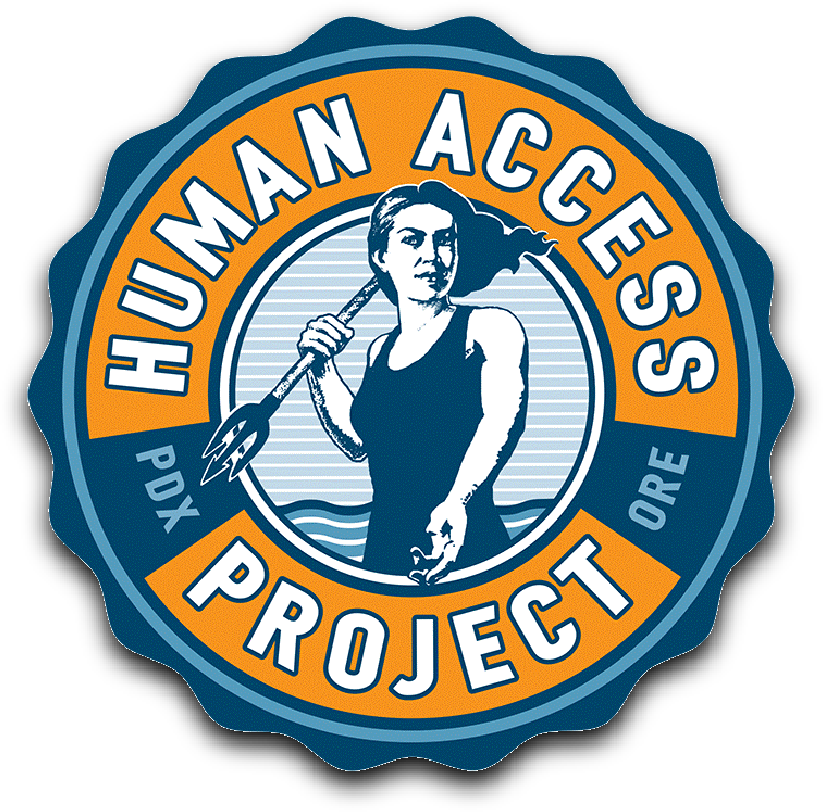Equity & Inclusion

HAP Equity and Inclusion Statement
The Human Access Project (HAP) brings together swimmers and river enthusiasts committed to making the Willamette River safe and inclusive for all people. Swimming and recreation in nature can be joyful and spiritual, and the river's timeless energy connects and inspires us.
At HAP, we wholeheartedly embrace and support all communities, including Black, Indigenous, Latinx, Asian Pacific Islanders, and people of color. We also stand with individuals who identify as LGBTQIA2S+ and people living with disabilities. We commit to forging meaningful partnerships with these communities, nurturing relationships where our missions and values align. Together, we can create a more inclusive and compassionate world for everyone.
HAP is committed to amplifying the voices of overlooked communities and ensuring their meaningful participation in public decision-making. We work to change racist and discriminatory practices while reducing barriers to a positive river recreation culture. At HAP we strive to understand and examine our privileges to avoid exclusionary practices. Our goal is to address biases and mitigate negative impacts to better help the communities we serve.
HAP strives to lead with heart, ears, and patience. We will work hard to help heal scars, right wrongs, develop trust, and inspire a love for the Willamette River and the outdoors. As part of our mission to “Transform Portland’s relationship with the Willamette River”, we will strive to create culture, change culture, and shape culture in Portland. May it lead to a better world for all of us.
(We acknowledge some challenging truths ahead and appreciate your understanding.)
The Willamette River has attracted and connected people for millennia, with Indigenous communities living along its banks year-round, drawn by the many gifts it provides. They have a deep kinship with the river and have been its stewards since immemorial times. This intimate human connection to the river was damaged as European settlers, who culturally believed in the manifest destiny mindset, arrived in the Willamette Valley. Over the next two centuries, the white supremacist worldview these settlers brought with them dishonored both non-white peoples and the river. It resulted in the removal and displacement of Indigenous people to reservations and the founding of white-only states with discriminatory laws against people of color.
Systemic and institutional racism have shaped our country's history and continue to impact society today, manifesting as white supremacy. These discriminatory practices have harmed BIPOC communities, leading to marginalization and experiences of intimidation, harassment, and assaults everywhere, including outdoor spaces.
Swimming is a vital life skill that can save lives, and HAP believes all children should have access to it. Unfortunately, discriminatory practices have created concerning statistics, causing significant harm. The Centers for Disease Control (CDC) reports that nearly ten accidental drownings occur daily in the U.S., totaling about 3,500 per year. African American children drown at rates three times higher than their white peers. Even as recently as the 1960s, Black people faced bans from public swimming facilities in Portland. HAP is committed to helping all children become confident swimmers and reducing water-related injuries in every community.
Discriminatory practices have impacted the natural world, leading to the industrialization and pollution of the Willamette River. This has led to the killing or poisoning of its once-abundant fish runs and the destruction of habitats, negatively affecting those who work on the river. The Portland Harbor is a Superfund site due to severe sediment contamination, which makes it unsafe to eat fish from the river. This pollution disproportionately impacts North Portland neighborhoods, where the site is located. The trauma from these discriminatory acts has been passed down through generations, mainly due to a lack of acknowledgment. Even amidst challenges, the river, like its passionate guardians, shows resilience. Its beauty draws people, reminding us of our deep connection with nature. HAP believes that meaningful change requires understanding the history and experiences that have shaped our present.




